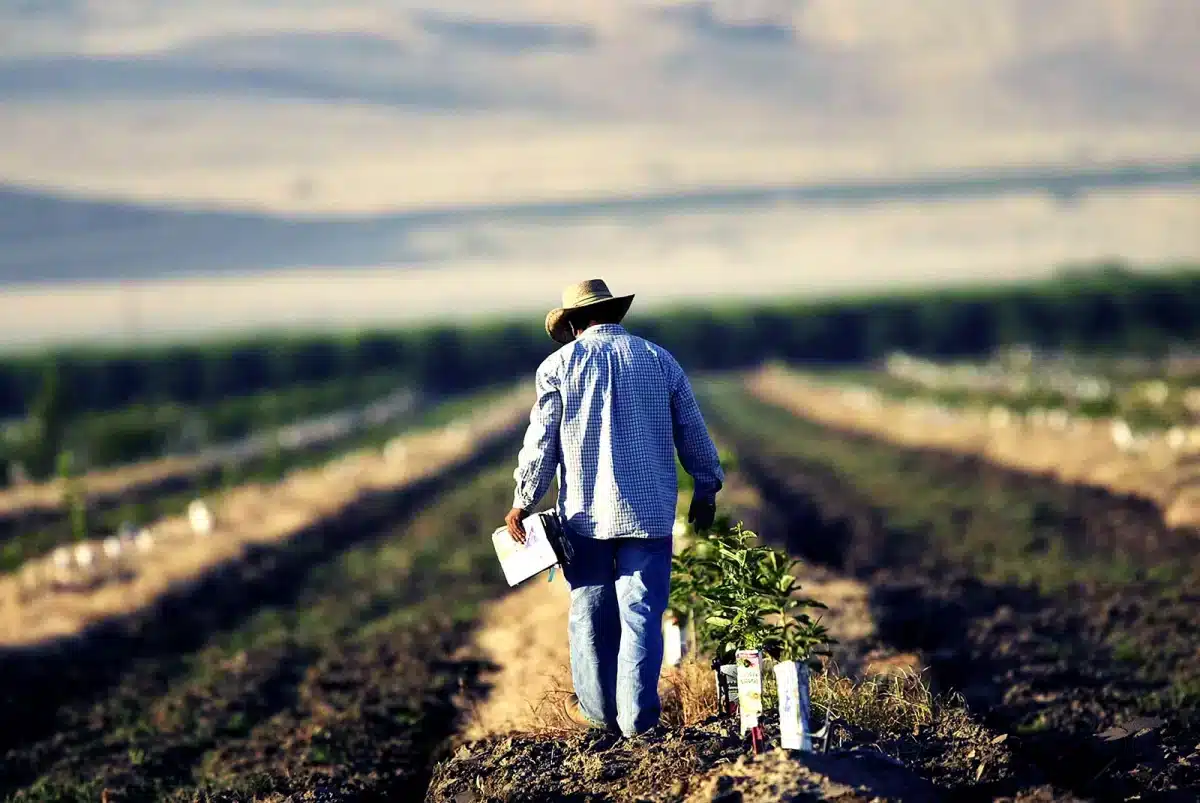“I tell a lot of producers that it’s a good thing we don’t understand chemistry or biology, because we wouldn’t be doing what we’re doing.” – Shane New
In an interview with Acres U.S.A, Shane New discusses the need for farmers to take a more biological approach to farming to promote regenerative agriculture. Shane is a stockman, entrepreneur, and partner with Understanding Ag, LLC. He is from Holton, Kansas. As a farmer himself, Shane has been practising methods such as no-tilling, cover crops, rotational grazing and adaptive grazing, for many years. He believes that the future for agriculture and human health will have to come from regenerative agricultural practices.
It was after reading about mycorrhizal fungi for the first time that Shane embarked on the journey of soil health. He says: “If we start understanding how life works – if we can feed the biology with plant root exudates and keep the soil surface covered and start to build aggregation, everything starts working within an equilibrium.”
The journey to a regenerative approach
Instead of advising farmers to cut out synthetic fertilisers and herbicides completely, Shane suggests a more gradual, economically-viable approach.
A tool he recommends to farmers is a soil health test that will give a snapshot of the current soil function. A soil health test can be used to demonstrate the effects (a “before/after”) that regenerative practices have had, giving farmers the confidence that sustainable farming is a practical and effective solution. Once they are convinced, it’s time to start on the journey of reducing inputs, adding diversity and minimising disturbances.
“It’s not rocket science”
Shane has three simple suggestions that promote regenerative agriculture. “What I’ve discovered is just something I’ve observed. If we just follow these principles, it’s not rocket science,” he says.
- Don’t disturb the soil
- Get a diversity of plants through cover cropping
- Get animals into the fields with adaptive grazing.
All of which add more diversity into the soil. “My deal is this: put your efforts on the soil health. If you focus on the soil health and getting soil to function properly, everything else will fix itself.”
In fact, Shane reports that influencing the functionality of his soils expresses itself in the superior flavours in the food he produces, including animal proteins. Shane has found that letting the animals have a greater diversity of plants in their diet has affected the taste and quality of the meat he produces.
| The difference between adaptive grazing and rotational grazing Adaptive grazing takes into account the size of the herd, the amount they consume on a daily basis, as well as the height and percent ground cover of the forages. Doing a bit of maths then gives the farmer an idea of how big an area is needed for a 24-hour graze. Rotational grazing is more of a “prescription” – animals are turned out on a large area, graze there until they’ve grazed what the farmer wishes to achieve, then they move on. Adaptive grazing is more intentional, allowing the farmer to effectively fight invasive species, get a concentrated amount of urine and manure in an area, and accurately control how much of the forage is eaten. It is a vital tool in the regenerative farming armoury. |
Nature’s reward takes time
“The biggest thing I’d like people to understand is that you’ve got to become intentional. If you’re gonna move down this path, you can’t be intentional-ish. Even if you’re not confident, test it. Follow the principles and keep each principle in place as much as possible. Remember that we work within the ecology. It’s not like we’re going to do one thing and see the consequences tomorrow. It might take a year before you start seeing it. We’ve become a society of instant gratification. That’s not how nature works. She will reward us, but it’s gonna take just a little bit of time.”
Start building a healthier soil today
Get in touch with the Zylem team to find out more about our soil health solutions and how to test the health of your soil with Brookside Laboratories’ Soil Health Tool. Contact us on 033 347 2893 or send your enquiry to [email protected].

